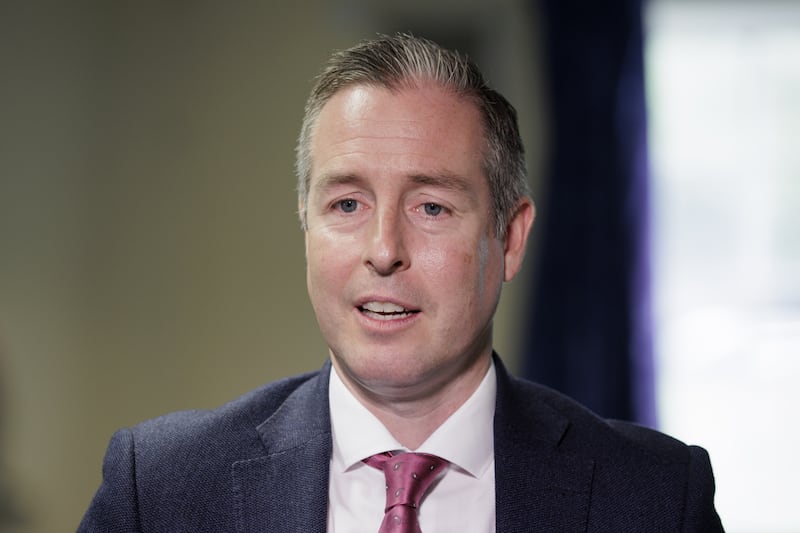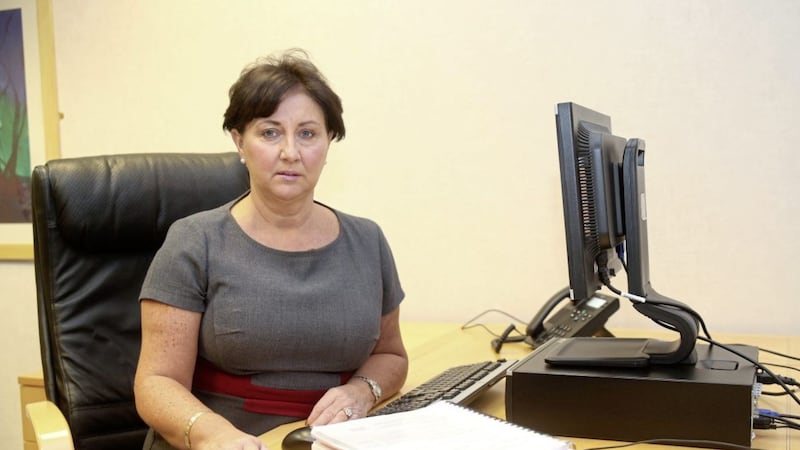The number of children being educated at home instead of school has topped 1,000 for the first time.
There has been a huge increase in ‘home schooling’ over the last five years – with the biggest annual jump coming in the 2024/25 academic year.
The statistics from the Education Authority (EA) were shared in a response to a series of assembly questions from Alliance member Michelle Guy.
Ms Guy had asked Education Minister Paul Givan about children missing in education (CME).
Education experts suggest that the increased popularity of home educating mirrors a trend happening in the US.
There has also been a notable spike since the Covid-19 pandemic when remote learning was introduced across the north.
While the numbers are relatively small, observers have previously claimed that home-schooling‘s rising popularity is evidence of increased disillusionment with the education system.
 Alliance MLA Michelle Guy has also called for more information about children missing in education. PICTURE: ALLIANCE
Alliance MLA Michelle Guy has also called for more information about children missing in education. PICTURE: ALLIANCE
The figures show that there are now 1,099 young people known to the EA as being “electively home educated” – a rise from 945.
In 2020/21, there were 710 pupils known to the EA that had been home educated.
The number increased steadily since then, rising to 808 and 907 by 2022/23.
The figures do not count remote learning during Covid lockdowns but instead focus on those who are not learning within mainstream school systems.
The figures also may not include all children currently receiving education from home, as some may have never enrolled in a school.
Ms Guy said that while the information provided showed the number of children electively home educated was now over 1,000, “the actual number may be much higher”.
“For example, if a child has never attended school, there is no legal requirement on parents to make any contact with the EA or Department of Education,” she said.
“If a child is being de-registered from a school for home education, the EA are reliant on the school completing a particular form, however in a recent circular to schools, the EA noted that both they and the department are aware that schools may not always be doing this.
“Families may opt for home schooling for a variety of reasons, but it must always be done in the best interests of the child. It must be ensured that they are receiving a quality education and have all the social opportunities and connections their peers will.”
She added that families and young people should “never feel forced into homeschooling because our education system has failed them”.
“Whether that is because of bullying not being adequately addressed, special, special educational needs support not being in place, or if they require support,” Ms Guy said.
“That situation should not be tolerated.”
Ms Guy said there were some concerns about how the progress of these children was tracked to ensure they are receiving an appropriate education.
In his reply to Ms Guy’s question, Mr Givan said the Department of Education does not currently hold information in relation to the number of children currently missing in education the north.
 Education Minister Paul Givan (Liam McBurney/PA)
Education Minister Paul Givan (Liam McBurney/PA)
However, his department does receive monthly management information from the EA on school attendance.
“This information is cumulative; it counts information throughout the year and therefore cannot identify pupils who are absent from school,” he said.
“There are many reasons for a pupil to be absent from school and the pupil level information received does not provide the reasons for absence.”
The statistics provided he added, provided an overview of the number of children “known to have been de-registered for the purposes of Elective Home Education (EHE)”.
“Other reasons why a child may be de-registered from a school include having permanently left the country and the death of a child,” Mr Givan said.


